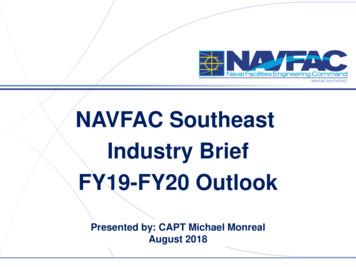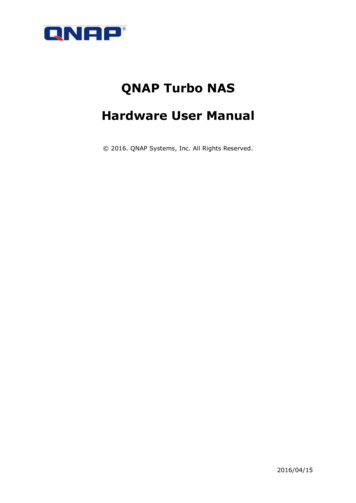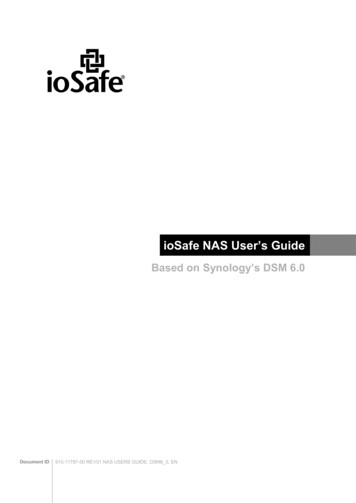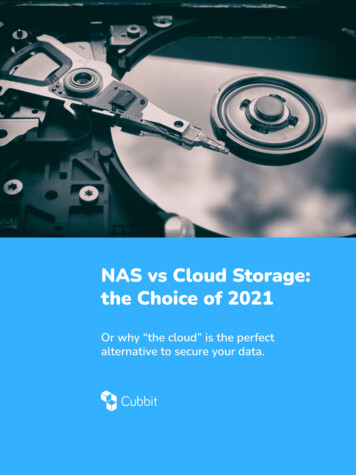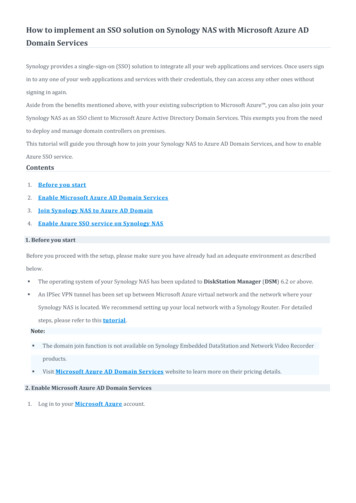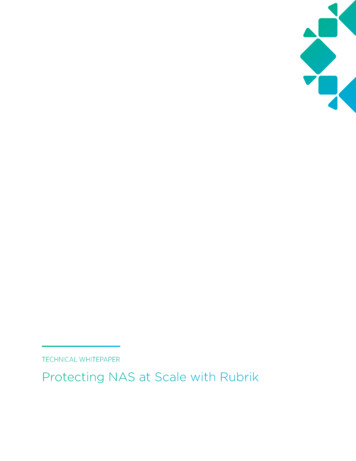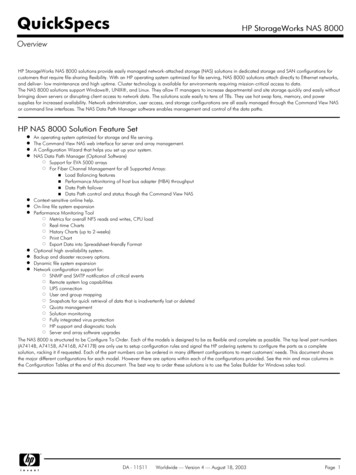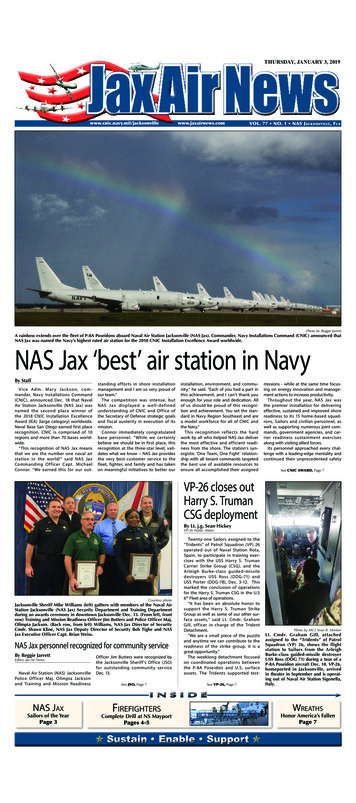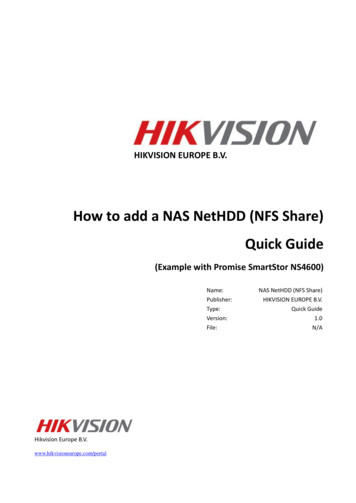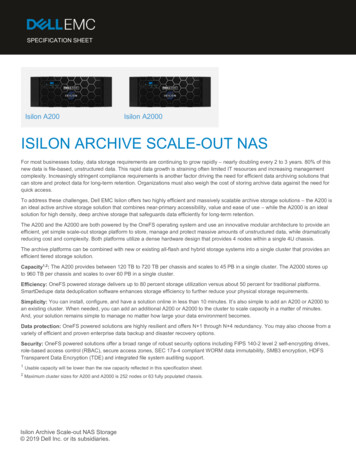![JMK-nas-8a- [20-1-2018] Revision Purwanto - Universitas WR Supratman](/img/15/cekplagiasi-plagiasi-20marketing-20politik.jpg)
Transcription
Results of plagiarism analysis from 2018-05-02 03:52 UTCJM K-nas-8a- [20-1-2018] revision Purwanto.docDate: 2018-05-02 03:45 UTC All sources 100 Internet sources 76 Own documents 2 Plagiarism Prevention Pool 16[3] nccur.lib.nccu.edu.tw/handle/140.119/835412.3% 27 matches[4] 3799787242.2% 25 matches[5] -0xLYT0IL0X1.9% 17 matches[6] neurship-Journal/243043160.html1.6% 15 matches[7] ullies.html1.4% 14 matches[8] -tl2denTwSK1.4% 14 matches[9] 9/01.3% 16 matches 1 documents with identical matches[11] 15-2696-z1.4% 16 matches[12] obs.sinaweb.net/article 20255.html1.4% 16 matches[13] eadway.html1.2% 15 matches[14] www.fsu.edu/cvdb/CDOUGLAS.rtf0.9% 12 matches[15] https://scielo.conicyt.cl/scielo.php?script sci arttext&pid S0718-272420160002000010.8% 10 matches[16] "MY MANUSCRIPT JOURNAL M&M.docx" dated 2018-05-020.8% 6 matches[17] -Yeq3L0zknB0.9% 8 matches[18] 523/1463/pm-pc.pdf0.7% 7 matches[19] good-thing/0.7% 7 matches[20] "jurnal TRziste.pdf" dated 2018-05-020.6% 7 matches[21] www.hmieleski.com/Publications/Ensley Hmieleski Pearce LQ 2006.pdf0.6% 7 matches[22] 0.6% 7 matches[23] file.scirp.org/Html/38800.html0.6% 8 matches[24] from a PlagScan document dated 2017-09-04 09:450.4% 3 matches[25] from a PlagScan document dated 2017-07-26 04:340.5% 3 matches[26] t/72623/0.5% 5 matches[27] phil-harris.com/wp-content/uploads/p6.pdf0.5% 6 matches 1 documents with identical matches12.5%
[29] 8130.5% 3 matches[30] arch-paper/0.5% 5 matches[31] scholar.google.com/citations?user Zpn08WoAAAAJ&hl en0.5% 4 matches[32] from a PlagScan document dated 2017-09-13 13:480.3% 3 matches[33] from a PlagScan document dated 2017-09-12 11:310.4% 6 matches[34] from a PlagScan document dated 2017-07-26 04:340.3% 3 matches[35] 49-7150-0 30.5% 5 matches[36] 2470.5% 3 matches[37] 0030.5% 5 matches[38] .8790.4% 4 matches[39] neeley.tcu.edu/About Neeley/Faculty and Staff/Hmieleski, Keith.aspx0.4% 4 matches[40] 11-0070-00.4% 3 matches[41] S00018791070009910.5% 3 matches[42] 8870.4% 3 matches[43] from a PlagScan document dated 2017-09-11 07:550.3% 2 matches[44] 364620180.4% 3 matches[45] % 3 matches 1 documents with identical matches[47] 00170.4% 3 matches[48] performance0.4% 4 matches[49] from a PlagScan document dated 2018-03-28 07:390.3% 4 matches[50] from a PlagScan document dated 2017-12-07 20:120.3% 2 matches 2 documents with identical matches[53] 8360.4% 2 matches[54] somorphism/0.3% 3 matches[55] www.quantpsy.org/pubs.htm0.4% 3 matches[56] ions-Ninth/0.3% 3 matches[57] from a PlagScan document dated 2017-11-22 19:460.3% 2 matches[58] 7983
[58]0.3%2 matches[59] Repository/mq:510170.3% 3 matches 3 documents with identical matches[63] from a PlagScan document dated 2017-08-31 07:560.2% 3 matches 1 documents with identical matches[65] https://fs.wp.odu.edu/abraitma/wp-conten.-Effects 04-2010.pdf0.3% 2 matches[66] www.jstor.org/stable/201590550.3% 3 matches[67] ganization/0.3% 1 matches[68] leadership/0.3% 3 matches[69] scholar.google.com/citations?user 8raXOskAAAAJ&hl en0.3% 2 matches[70] from a PlagScan document dated 2017-07-26 04:490.2% 2 matches[71] S10489843060000510.3% 2 matches[72] https://www.researchgate.net/publication.and Judge 1991 model0.2% 3 matches[73] -ssxpPB9U0X0.3% 3 matches[74] https://psychology.osu.edu/people/hayes.3380.3% 2 matches 1 documents with identical matches[76] S14690292163010660.3% 3 matches[77] -assessing/0.3% 2 matches 1 documents with identical matches[79] scholar.google.com/citations?user KEQYTwcAAAAJ&hl en0.3% 2 matches[80] from a PlagScan document dated 2017-09-28 06:230.2% 2 matches[81] o 51407080.3% 1 matches[82] atisfaction0.3% 2 matches[83] o 5140708&info resumen0.3% 1 matches[84] from a PlagScan document dated 2017-04-17 07:400.2% 3 matches[85] amr.aom.org/content/29/3/479.short0.3% 2 matches[86] n tcm5-6119.pdf0.3% 2 matches[87] https://www.researchgate.net/publication.ivation and Volition0.3% 2 matches[88] -qaAaCmpHbx0.3% 2 matches[89] 1091210.3% 1 com/ingratiation
[90] ratiation0.2% 1 matches[91] www.jwalkonline.org/docs/Grad Classes/.odel of work.pdf0.2% 2 matches[92] alyze-multiple-mediators-in-stata/0.2% 1 matches 3 documents with identical matches[96] psycnet.apa.org/journals/ccp/75/2/336/0.2% 1 matches[97] https://www.researchgate.net/publication.ng Theory and Impact0.2% 2 matches[98] www.pnas.org/content/109/11/40860.2% 1 matches 2 documents with identical matches[101] from a PlagScan document dated 2017-10-16 12:230.2% 2 matches[102] S10489843070003790.2% 2 matches[103] https://www.researchgate.net/publication.Top Management Teams0.2% 2 matches[104] from a PlagScan document dated 2017-09-13 15:250.1% 1 matches[105] scholar.google.com/citations?user L6ejU7cAAAAJ&hl en0.2% 1 matches[106] 11.01238.x/abstract0.2% 1 matches 1 documents with identical matches[108] from a PlagScan document dated 2016-10-26 11:290.1% 1 matches[109] g-indirect/0.2% 1 matches[110] ry-Building0.1% 1 matches[111] https://www.researchgate.net/publication.putation assessments0.1% 1 matches 1 documents with identical matches[113] https://en.wikipedia.org/wiki/Journal of Marketing Research0.1% 1 matches[114] 07.00488.x/abstract0.1% 1 matches10 pages, 7082 wordsPlagLevel: selected / overall414 matches from 120 sources, of which 94 are online sources.SettingsData policy: Compare with web sources, Check against my documents, Check against my documents in the organization repository, Checkagainst organization repository, Check against the Plagiarism Prevention PoolSensitivity: MediumBibliography: Consider textCitation detection: Reduce PlagLevelWhitelist: --
JMK, VOL. 20, NO. 1, MARCH 2018, 53–62ISSN 1411-1438 print / ISSN 2338-8234 onlineDOI: 10.9744/jmk.20.1.53–62MARKETING ON POLITICS AND PUBLIC LEADERSHIP2Purwanto1*, Eddy Madiono Sutanto, Asmara Indahingwati3[16]1Faculty of Economics, W. R. Supratman University, Indonesia2Faculty of Economics, Petra Christian University, Indonesia3Indonesia School of Economic Surabaya, Indonesia*Corresponding author; Email: cakpo3r@gmail.comAbstractThis study examines the influence of political marketing and political will on public leadership andindividual performance. The sample used is the people in Surabaya as manyas 265 with a random sampling[25]method. Amos 21 is used to test the indirect effect by using bootstrap test. The result of the research showsthat political marketing and political will have a significant influence to the success of gaining publicleadership, political marketing and marketing will have no significant effect on performance, and public leadership has a significant effect on performance. For the indirect influence, political marketing and politicalwill on individual performance are mediated by public leadership.[58]Keywords: Political marketing, political will, performance, public leadership.IntroductionPublic leadership resulted from direct electionshas become increasingly interesting topic in recentyears, along with the empirical fact that more needs tobe known about this phenomenon (Shaughnessy,Treadway, Breland, & Perrewé, 2017; Lvina, Maher,& Harris, 2017). One phenomenon in public leadership contestation is the willingness of the individualsin marketing themselves and political skill owned(O'Shaughnessy, 1990, 2006; Henneberg & O'Shaughnessy, 2007) to convey the promise of program sincerely that shows the word with action. Although themarketing model in politics differs significantly fromthe marketing model in business, because in the political world it is something mysterious, it neverthelesshas substantially the same ultimate goal of providingvalue and loyalty to the constituents (Butler & Collins, 1996; Wring, 1997; Henneberg, 2007). Therefore, the political marketing strategy implementationin public leadership contestation becomes very relevant (O'Cass, 2001; O'Shaughnessy, 2006; Kotler &Zaltman, 1971).Empirical facts on the phenomenon have triggered an investigation of public leadership and behavioral consequences and effectiveness of managementto the organization (eg, Carson, Tesluk, & Marrone,2007; Ensley, Hmieleski, & Pearce, 2006; Friedrich,Vessey, Schuelke, Ruark, & Mumford, 2009; Zhang,Waldman, & Wang, 2012). Some early researchersclaimed that the skillful leadership in politics at leastis more effective, because it can pack and present perceptions of behavior more ethical, effective and without showing any ulterior motive in society (Ewen etal., 2014; Harvey, Harris, Kacmar, Buckless, & Pescosolido, 2014).53Political marketing in democratic parties is analogous to a competitive market, voters or citizens asconsumers, and prospective leaders as products or services (Henneberg & O'Shaughnessy, 2007). The behavior of the Democratic Party and overlapping businesses, eventually led to the culture of consumerismand transactional, causing loyalty to parties and candidates for leadership change (Collins & Butler,2003). Politics inherent in most organizations arecaused by the informal behavior of members of theorganization in order to gain supports as a leader(Mintzberg, 1983). Shaughnessy et al. (2017) arguethat the role of the leader is a part of the informal andformal structure, so that this informal role requiresboth the competence and political ambition to be supported by the subordinates (the people). Therefore, thepolitical will becomes the ultimate requirementowned by a leader. The political will is highly relevant to the process of public leadership because thepersonality and skills-related traits do not automatically gain power from subordinates (Mintzberg,1983). Thus, the individual's willingness to engage inthe political process must havean appropriate political[6]skill and political marketing.Political skill as a main requirement in the political will, must be effectively able to understandothers at work, and able to influence others to act according to personal and or organizational goals (Ferriset al., 2005; Brouer, Douglas, Treadway, & Ferris,2013). Prospective leaders thrive in the space betweenthe formal structure and informal status, so it mustrisk the reputation capital, as well as the appropriatecontext to exert the influence of its leadership(Treadway, Hochwarter, Kacmar, & Ferris, 2005;Treadway, Douglas, Ellen, Summers, & Ferris, 2014;Lvina et al., 2017). Although some previous re-
54JURNAL MANAJEMEN DAN KEWIRAUSAHAAN, VOL. 20, NO. 1, MARCH 2018: 53–62searchers have discussed the political will and political marketing, a complete understanding about theconsideration of political will and political marketingin leadership is still poorly developed, especially theprocess of ambition, ability and political skill affectthe success of leadership (eg, Blickle, Oerder,& Sum[68]mers, 2010; Douglas & Ammeter, 2004; Ammeter,Douglas, Gardner, Hochwarter, & Ferris, 2002;Treadway et al., 2014). This study combines and extends the literature in developing the political marketing positioning model and the political will towardsthe performance of public leaders. Based on the previous research, the performance of the work of publicleaders is determined by adequate ability: ability toevaluate the dynamics of the organization appropriately, and utilization of the resources as well as thespace provided based on his or her leadership statuswhich can improve performance of individuals or organizations (Ammeter et al., 2002; Treadway et al.,2005; Ferris et al., 2007). Specifically, this study aimsto investigate the influence of political marketing andpolitical willon public leadership and individual per[32]formance.The constructed hypothesis is that the public leadership mediates the effect of political marketing withthe concept of the marketing mix and the political willon the performance of the individual. If the prospective leaders have the power to sell and political skill,the individual's performance as a public leader will beaccepted by the organization (government). In thenext few sections, there are some reviews on previousresearches on political marketing, political will and individual performance. Then it is followed by the description of the research method, including a descrip[63]tion of the measurements to test the hypothesis. Afterreviewing the results of the study, the conclusion isdrawn, including some important implications for leaders, weaknesses, and directions of future researches.Public LeadershipMany public sector literatures tend to focus onthe political leadership of the great men who becomepolitical leaders, and the nature or characteristics ofthe individual. The public sector leadership literatureis focused on the president and also to Congress asdemonstrated in the Encyclopedia of Leadership (Raffel, Leisink, & Middlebrooks, 2004). Public sectorleadership is much more specific than leadership generally in organizations and even more expansivethan political leadership, as some recent publicationsreveal. Van Wart and Dicke (2007) suggest severaltypes of public sector leadership, namely organization(neglected and focused), politics and movement(Martin Luther King's role in the civil rights movement). Classical organizational theory consists of for-mal and informal organizations. Formal organizationis as a consciously coordinated system of activities oftwo or more persons (Barnard, 1938). That is explicitly actuating the subordinate to achieve the samegoal in gaining success. The central actors in the organization leadership have certain characteristics thateffectively can improvethe performance in the orga[33]nization (Scott, 1961). The concept of public leadership status acts as a product of contestation and political skill, which is reflected in the extent to whichthey recognize as the leader. Therefore, the individualmust be accepted and acknowledged in aggregate bythe followers, as leaders exert influences over others(Lord & Maher, 1991; Phillips & Lord, 1981).Political MarketingThe implementation of practical marketing inpolitics is a new additional concept, which enters therealm of social and nonprofit marketing with variouscontributions (Mauser, 1983; Newman, 2002; Farrell& Wortmann, 1987; Reid, 1988; Harrop, 1990;O'Shaughnessy, 1990; Smith & Saunders, 1990). Itintroduces the topic and analysis of in-depth marketing instruments, although it does not state specifically as a theory. However, researches on politicalmarketing are rapidly gaining momentum, as drivenprimarily by the development of dynamic marketingapplications of some political parties and candidates,such as in the election of public sector leaders.Political marketing as a reference or analysis toolof the party or candidate of leaders to promote competitive ideas can help realize organizational goals andsatisfy voter groupsin exchange for voter's votes[18](Wring, 1997). O 'Cass (1996) stipulates that the useof marketing aims to offer the ability of political parties to address various problems and needs of votersthrough analysis of planning, implementing, and[18]controlling of political campaigns and contestation. Furthermore, O 'Cass (1996) argues that the main purpose of political marketing is political parties and voters making the most appropriate and satisfactory decisions for society. Political marketing is a promiseand delivery process or implementation that is "produced jointly" by all involved actors (Henneberg &O'Shaughnessy, 2007).The marketing political model used in contestation is through the classical concept of marketing mixconsisting of product, price, place and promotion(Niffenegger, 1989). The products in politics are theparty platforms, track records and personal characteristics. Political prices include the economic costs,psychological costs and imagery. Distribution includes the marketing programs and volunteer pro-
Purwanto: Marketing on Politics and Public Leadershipgrams. Promotions include the campaigns containingadvertising, publications and vote getter. Thus thesuccess of a leader is influenced by how to apply themarketing mix in the appropriate political marketing.Therefore,the hypothesis formulated as follows:[24]H1 : Political marketing has a significant effect on thesuccess of public leadership.[25]H2 : Political marketing has a significant effect onperformancePolitical WillPower tends to be viewed as a part of an effective leadership; thus, a motivation for power is ofteninvestigated in the context of leadership (Shaughnessyet al., 2017; Lvina et al., 2017). The political skill thatmust be possessed in the need for power (politicalwill) is associatedwith individual effectiveness[68](Blickle et al., 2010), leaders (Douglas & Ammeter,2004), teams (Ahearn, Ferris, Hochwarter, Douglas,& Ammeter, 2004), and subordinates (Brouer et al.,2013). Lacking political skills is seen as a pretext todepose leaders (Laird, Zboja, Martinez, & Ferris,2013; Van Velsor & Leslie, 1995). Most great leadershave highly developed social antennae. They use acomplex mix of cognitive and observational skills torecognize what followers are consciously and unconsciously signaling to them (Goffee & Jones,2005). For example, some studies show that politically skilled individuals who use branding tactics arerated higher than politically unskilled individuals[6](Harris, Kacmar, Zivnuska, & Shaw, 2007; Treadway, Ferris, Duke, Adams, & Thatcher, 2007;Ferris, Treadway, Brouer, & Munyon, 2012). Theincrease in performance value is mediated by the perception of leaders on the capabilities and suitabilitywith the people's expectations (Kolodinsky et al.,2007; Wu, Kwan, Wei, & Liu, 2013). People whohave the need for power with political skills arejudged to be more effective (Douglas & Ammeter,2004) and have high performing teams (Ahearn et al.,2004) than leaders without skill. A leader's politicalskill is the most important predictor of managerialperformance in addition to self-description, self-efficacy, and emotional intelligence (Robins & Ferris,2006). Political will emerges as the strongest predictorof adaptive and proactive capabilities and performance when compared to other predictors includingprofessional experience and intrinsic motivation (García-Chas, Neira- Fontela, & Varela-Nira, 2015).A person with a high personal power motive willcultivate a cognitive tendency to exert power and influence others (Kehr, 2004). On the other hand,55political will would define leadership behaviors thatlead to organizational performance (McClelland,Koestner & Weinberger, 1989; Lord & Dinh, 2014).The present study highlights certain contexts (e.g.,public leadership of a region), as this may trigger thisbehavior in individuals with a high motivation forpower. Political will is often the theme in studies oforganizational politics (Treadway, 2012). The needfor power represents the mobilization of energy in thepursuit of political goals (Treadway et al., 2005). Motivation or willingness to engage in political behaviorwill show the actual political behaviors and their political skills will transform those behaviors into organizational outcomes (Shaughnessy et al., 2017). Thepresent study draws on some previous literatures thatexamine the need for power (political will) and publicleadership as a political behavior to influence performance. Political will constitutes a requirement thatshall be possessed by a potential leader in order for individual performance to be realized as the final outcomes expected by subordinates.The (public) organizational performance is aconceptualization of political will since public leadership with political skills is thought to have greater success in the organization (Brouer et al., 2013; Ferris etal., 2005; Ferris et al., 2007). Previous studies showthat the construct of political will and political skill ofleaders can influence the levels of performance (Ferriset al., 2005). Furthermore, Ferris et al. (2007) suggestthat political will has implications for the self, relevantothers, and group or organization. Political behaviorscharacterize the public leadership with a political will;despite the limited social capital and the lack of support from the political party, in terms of grassroots ithas a strong mass base to influence. The need forpower (political will) of an individual as a leaderwill[20]have an effect on subordinates (the people). Therefore, the following hypotheses are formulated:H3 : Political will (the need for power) has a significant effect on the success of public leadership.H4 : Political will (the need for power) has a significant effect on performance.H5 : The success of public leadership has[20]a significant effect on individual performance.The conceptual framework that describes theoverall hypothesis is shown in Figure ticalWill[20]H4Figure 1. The conceptual model of the proposed frameworkPerformance
56JURNAL MANAJEMEN DAN KEWIRAUSAHAAN, VOL. 20, NO. 1, MARCH 2018: 53–62Figure 1. The conceptual model of the proposed frameworkResearch MethodSamples and ProceduresThe sample of respondents encountered in offices, shopping centers or campuses were taken inSurabaya by using the random sampling technique.Of 300 respondents, a total of 265 (or 88%) wasdeemed eligible for analysis. In detail, 160 respondents (or 60.3%) were male and 85 or 32.07% werefemale and 20 or 7.53% did not identify their sex andtheir average age was 32.5 years). With regard to education level 65.0% of respondents were undergraduate, 20.0% had a master degree, 10.0% had a doctoral degree, and 5.0% did not identify their level ofeducation. Furthermore, 71.5% of respondents werefrom Surabaya and 28.5% from outside Surabaya.Research Measuring InstrumentAll the scales used in the present study areadapted from the measuring instruments that havebeen tested and validated by previous researchers.Political marketing is measured by a measurementconsisting of product politics, price politics,distribution politics and promotional politics(Niffenegger, 1989; Henneberg& O'Shaughnessy,[33]2007; O'Shaughnessy, 2006). The items use a 5-pointscale (1 strongly disagree, 5 strongly agree).The items of subordinate perceptions of theleader's political will (the need for power) are adaptedfrom McClelland (1975), Ferris et al. (2005),Shaughnessy et al. (2017) and Lvina et al. (2017).These include the personal influence (e.g., “It's easyto build good relationships with most people”), thesocial intelligence (e.g., “He understands people verywell”), the behavioral integrity (e.g., “When communicating with others, he is trying to be sincere aboutwhat he says and he does”), the networking capability(e.g., “He devotes a lot of time and efforts buildingnetworks with others”), and the political skills(“Always be instinctively aware of the right thing tosay and to do to influence others”).Public leadership is measured by the politicalwill of aspects of leadership traits (Knoke & Burt,1983; Lord & Dinh, 2014) and representationnetworks. Some earlier investigators ask respondentsto answer a statement addressed to a list of allcandidate leaders (e.g., Neubert & Taggar, 2004;Venkataramani, Richter & Clarke, 2014; Zhang et al.,2012). Specifically, respondents are asked to nominate their candidate leaders and to put a tick next tothe name of individual considered as a suitable leader.However, the present study does not mention thenames of candidate regional leaders in order to avoidsubjectivity and, coincidentally, there will be an election of Governor and Vice Governor of East Java Province in 2018.With regard to the performance variables, organizational performance measures similarly to those ofother study investigating performance or work performance (i.e., Zhang et al., 2012), covering employeerelationships with colleagues and their supervisors,their interactions with other staff and clients, professionalism, and punctuality. The control variables usedfrom the number of collected demographic variablesconsist of age, gender, and education, which are takeninto account in this analysis as age (Sturman, 2003;Waldman & Avolio, 1986), gender (Eagly & Karau,2002), and education (Biernat & Kobrynowicz, 1997)have shown to have an effect on leadership and/orperformance, as found by Waldman and Avolio(1986) that job performance may increase with theage.Results and DiscussionsReliability and Construct ValidityTo test the construct validity of each scale, thepresent study uses the confirmatory construct analysis(CFA) and analyzes the covariance matrix by using[16]the maximum likelihood procedure of Amos 21. Thecomplete results of CFA, including mean, standarddeviation, construct reliability, average variance extracted (AVE) and bivariate correlations among eachlatent factors can be found in Table 1.
Purwanto: Marketing on Politics and Public LeadershipThe results show that the measurement modelcorresponds to the data adequately (χ2 2507.11; p0. 01; df 1.303; CFI[16] 0.88; TLI 0.87; RMSEA 0.08; SRMR 0.07). In addition, items incorporated into the measurement model have construct reliability ranging from 0.78 to 0.98, indicating that themeasuring instrument is very reliable. Furthermore,Churchill, Jr. (1979) suggested that the construct mustbe tested for its convergent validity and discriminantvalidity.The average variance extracted (AVE) for political marketing is 0.88, political will 0.89, public leadership 0.84, and performance 0.87. All valuesexceed the recommended level of 0.50. Thus, thescales of political marketing, political will, public leadership, and performance have a convergent validitysince these variables show a greater explanatory power than the error variance (Fornell & Larcker, 1981).Figure 2. Hypothesis test resultHypothesis TestingThe path analysisis conceptualized on the model[24]using AMOS 21. The results of the structural modelcan be seen in Table 2 and the result of the hypothesistesting can be seen in Figure 2.Overall, the model shows a fit with the data (χ2 3.53, p 0.75, df 7; CFI 1.01; TLI 1.03;RMSEA 0.00; SRMR 0.03); as can be seen fromTable 2. Political marketing has a significant effect onpublic leadership (β 0.52, p 0.01) and political57marketing has a significant effect on public leadership(β 0.24, p 0.01), and public leadership has a significant effect on performance (β 0.21, p 0.01).Thus, the results support H1, H3, and H5, while H2 andH4 are not supported.The indirect effect bootstrap test (Preacher &Hayes, 2008) is used to evaluate hypotheses, between[80]implicit variables in the model, as in Table 3. Theanalysis results show that there is a significant directinfluence of political marketing of the leader on theperformance (a b 0:13; 95% CI [0:06, 0.21]).When there is a direct effect of leaders politicalmarketing to the performance of the models, the linewas not significant (β 0.04, p 0.55). Simultaneously, the effect of the leader's political marketing onperformance is entirelymediated by the success of[49]public leadership. Similarly, a direct influence on theperformance of political will is also fully mediated bythe success of public leadership (a b 0.17; 95% CI[0.02, 0.12]) and (β 0.05, p 0.54). Thus, supportwas found for Hypothesis 1 and 3.The indirect effect of political marketing on performance is not significant (a x b -0.01; 95% CI[0.04, 0.02] β 0.12** and the indirect effect of politica
53 MARKETING ON POLITICS AND PUBLIC LEADERSHIP Purwanto1*, Eddy Madiono Sutanto2, Asmara Indahingwati3 1 Faculty of Economics, W. R. Supratman University, Indonesia [16] 2 Faculty of Economics, Petra Christian University, Indonesia 3 Indonesia School of Economic Surabaya, Indonesia *Corresponding author; Email: cakpo3r@gmail.com Abstract This study examines the influence of political marketing .

